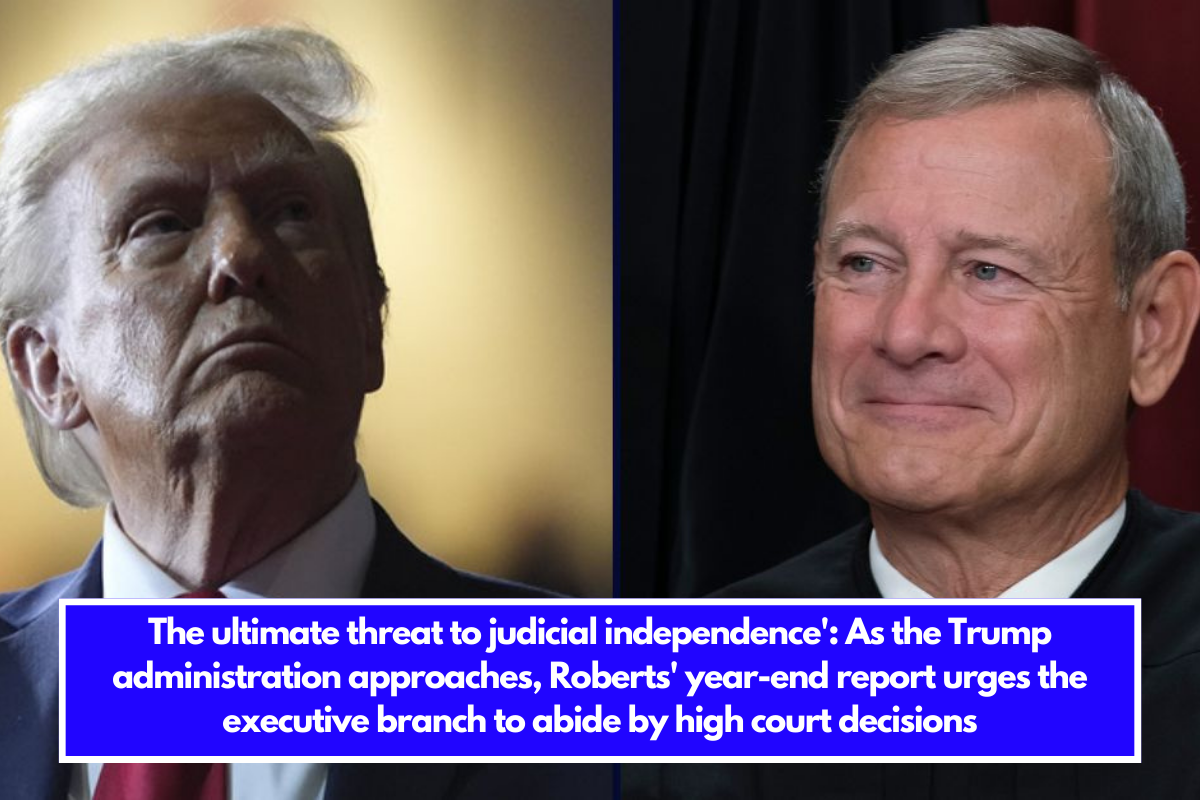In his 2024 year-end report, released on Tuesday, Chief Justice John Roberts of the United States Supreme Court provided a history lesson advising respect for the judiciary’s independence.
The end of last year comes at a critical juncture in the country’s history: President-elect Donald Trump will be inaugurated as the 47th president in less than three weeks.
And, while the report makes no mention of the former or future president by name, much of the advice is directed at the Executive Branch.
The report begins with a simple story about one well-known incident in which an executive failed to respect the judiciary in the Americas:
In December 1761, a little more than one year into what would be a fifty-nine year reign, King George III decreed that from that date forward, colonial judges were to serve “at the pleasure of the Crown.” This royal edict departed from the long-standing practice in England, enshrined by Parliament in the 1701 Act of Settlement, of allowing judges to retain their offices “during good behavior.”
The King’s order was not well received. To the colonists, stripping lifetime appointments from judicial officers marked yet another instance in which British subjects living on the west side of the Atlantic Ocean were treated as second class…
The history lesson continues as the chief justice delves into other instances in which the former British monarch defied or disrespected judges—incidents that prompted informal complaints from “Boston lawyer” John Adams and, later, formally, by Thomas Jefferson in the Declaration of Independence.
In an annual tradition, Roberts shares his thoughts on the state of the federal judiciary and its relationship with the other branches of government. These ideas are usually organized thematically.
One theme of the 2024 report is a call for the executive to enforce and/or comply with Supreme Court decisions.
Following an extensive list of “threats to judicial independence,” the chief justice delves into a detailed description of what he refers to as the “final threat to judicial independence.”
Roberts describes this threat as “defiance of judgments lawfully entered by courts of competent jurisdiction.”
According to the jurist, such perceived defiance could come from either major political party.
“It is not in the nature of judicial work to make everyone happy,” the judge writes. “Most cases involve a winner and a loser. Every administration loses in the court system, sometimes in cases with significant implications for executive or legislative power or other important issues.
Nevertheless, the nation has followed court decisions, whether popular or unpopular, for several decades, avoiding the standoffs that plagued the 1950s and 1960s.
In recent years, however, elected officials from all political parties have raised the possibility of open disregard for federal court rulings. We must categorically reject these dangerous suggestions, however sporadic they may be.
As Politico’s Josh Gerstein reported last year, at least two elected Democrats and one Republican urged the Biden administration to disregard a federal court ruling that limited the availability of the abortion drug mifepristone. The administration, for its part, filed an appeal and later received a reprieve from the country’s highest court.
The year-end report’s central theme is “illegitimate activity,” which “threaten[s] the independence of judges.”
Other threats to the judiciary mentioned in the report include violence, intimidation, and disinformation.
The report ends with a call for unity of purpose, as though the call for loyalty to the system is inevitable.
“The federal courts must do their part to preserve the public’s confidence in our institutions,” Roberts says near the end. “We judges must stay within our designated areas of responsibility and do our best to discharge those responsibilities fairly.
We accomplish this by limiting ourselves to live ‘cases or controversies’ and maintaining a healthy respect for elected officials’ efforts on behalf of the people they serve.
I am confident that the judges in Article III and the corresponding officials in the other branches will faithfully discharge their duties with the goal of achieving the successful cooperation required for our country’s continued success.





















